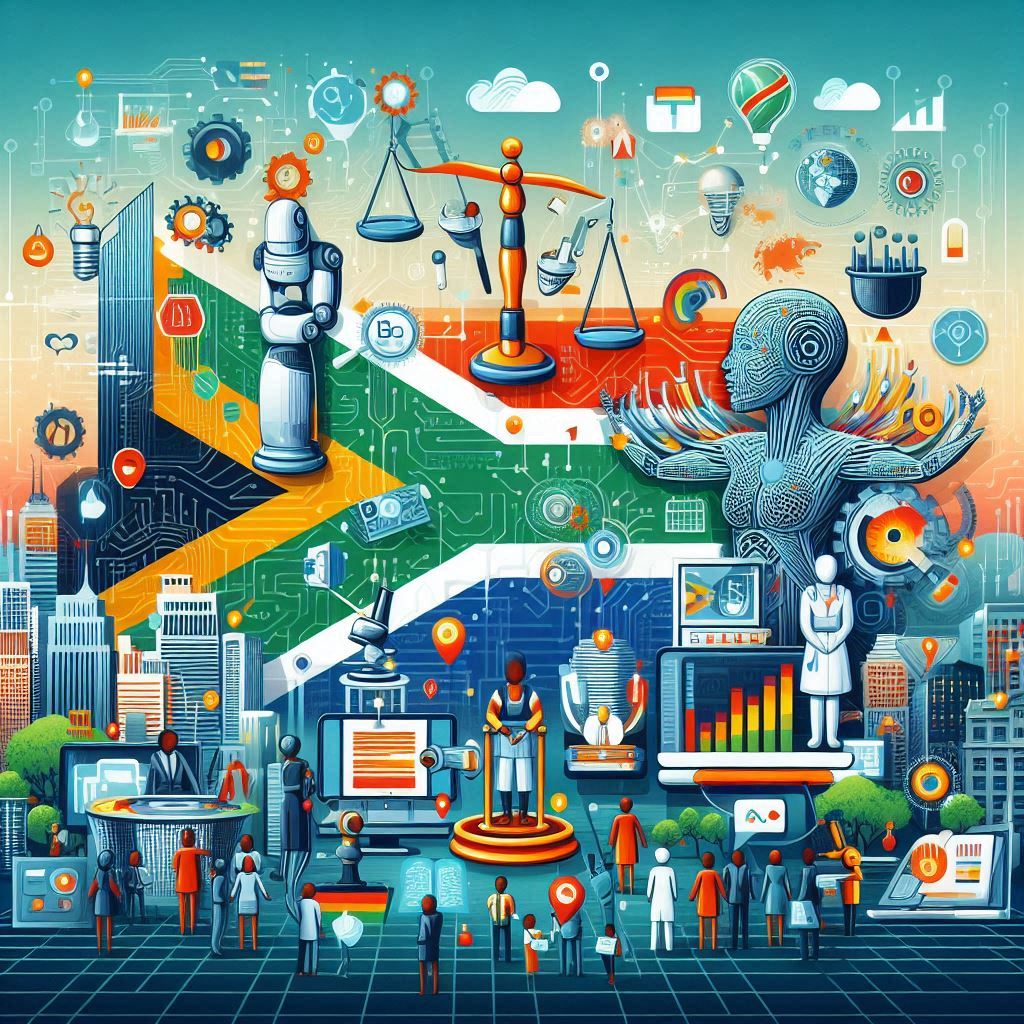The Future of Work in South Africa: Navigating Artificial Intelligence, Labour Law Reform, and Skills Development in the Fourth Industrial Revolution
A White Paper on Strategic Human Resource Management, Legal Sector Transformation, and Organisational Adaptation

© Etienne Pretorius 2025
Published Thursday, 18 August 2025
Approximately a 38-minute read Approximately 11 312 words
PBC Group article: https://pbcgroup.co.za/?p=1648
South Africa’s labour market is undergoing an unprecedented transformation driven by the rapid advancement of the Fourth Industrial Revolution (4IR), particularly the rise of artificial intelligence (AI) technologies. This transformation is reshaping labour legislation, human resource practices, skills demand, and organisational structures within the unique socio-economic landscape of South Africa. As AI increasingly automates routine tasks, about 40% of employers anticipate a reduction in workforce size in affected areas, while simultaneously new opportunities arise for roles that foster collaboration between humans and AI.
This white paper explores the multifaceted impact of AI on South Africa’s future of work, highlighting critical challenges such as persistent structural inequalities, a significant digital divide, and the urgent need for ethical AI governance frameworks. It underscores the pressing requirement for inclusive strategies that not only harness AI’s potential but also safeguard human dignity and advance employment equity.
Amidst global shifts, South Africa faces the dual challenge of embracing technological progress while addressing the entrenched legacy of an unequal labour market and an oversupply of unskilled workers. Human resource functions are evolving from traditional administrative roles to strategic partners entrusted with balancing compliance to progressive labour legislation with the imperative to develop a future-ready workforce. The growing skills gap is one of the most significant barriers to this transformation, with a clear demand for both technical skills—such as data science, machine learning, and cybersecurity—and human-centred skills, including creative and critical thinking, emotional intelligence, leadership, and adaptability.
AI integration in business operations extends beyond automation; it entails the fundamental reimagining of recruitment, performance management, and employee development processes. However, AI adoption introduces challenges related to algorithmic bias, data privacy, and the ethics of workplace surveillance, necessitating robust safeguards and human oversight.
The South African labour law framework, though progressive, currently lacks specific provisions to address AI-driven employment issues such as algorithmic fairness and automated decision-making transparency. The government’s 2024 National Artificial Intelligence Policy Framework provides strategic guidance but stops short of comprehensive legislation, signalling an urgent need for reform to protect worker rights in the AI era.
Sector-specific analysis, exemplified by the legal industry case study, illustrates both significant benefits—increased efficiency, improved access to justice, and enhanced legal research—and critical risks, such as AI hallucinations, data security concerns, and cultural bias in AI models predominantly trained on foreign legal systems. Regulatory bodies like the Legal Practice Council are actively developing governance frameworks to uphold professional standards and ensure responsible AI use.
Organisations face transformative structural shifts, adopting flatter hierarchies and fostering cross-functional, remote, and AI-augmented teams. Successful AI implementation emphasizes augmentation rather than replacement, with humans applying contextual judgment alongside AI-driven insights. Workforce strategies thus focus on upskilling, reskilling, embracing diverse talent, and cultivating adaptive organisational cultures that overcome resistance to change.
Internationally, South Africa can learn from global standards such as the OECD AI Principles, the EU AI Act, IEEE ethics guidelines, and UNESCO’s Ethics of AI framework, balancing innovation with human rights protections and democratic values. Additionally, regional initiatives promote AI governance that is both context-sensitive and inclusive of African perspectives.
This white paper advances strategic recommendations spanning immediate regulatory actions and long-term national AI governance integration. It calls for education reform embedding AI literacy, expanded skills development frameworks, organisational transformation roles focused on AI governance, and industry-specific strategies for sectors like legal, financial, manufacturing, and mining. Strengthening academic partnerships and nurturing vibrant innovation ecosystems will be key to developing ethical, locally relevant AI solutions that reflect South Africa’s diverse cultural landscape.
In conclusion, AI offers South Africa a profound opportunity for economic growth and social advancement, but successful transformation depends on a deliberate, human-centred approach. Adaptive governance, proactive skills investment, inclusive policies, and collaborative leadership across government, industry, academia, and civil society are essential to ensure that AI-driven change contributes to a more equitable, inclusive, and prosperous future of work.
Download for the full paper
General Hashtags: #FutureOfWork #AITransformation #SouthAfricaEmployment #4thIndustrialRevolution #AIEthics #WorkforceDevelopment #DigitalTransformation #HRInnovation #TechAndSociety #ResponsibleAI
Industry-Specific Hashtags: #LegalTech #AIInLaw #HRTech #LegalInnovation #EmploymentLaw #LabourRelations #ProfessionalServices #LegalPractice #HRStrategy #TalentManagement
South African Context: #SouthAfricaFuture #AfricanInnovation #SALabourLaw #EmploymentEquity #SkillsDevelopment #SATech #AfricaAI #TransformationSA #InclusiveGrowth #EconomicTransformation
Academic and Policy: #AIPolicy #AIGovernance #EmploymentPolicy #ResearchAndDevelopment #PolicyReform #AcademicResearch #ThoughtLeadership #StrategicPlanning #PublicPolicy #LegalReform
Trending and Movement: #AIForGood #TechForDevelopment #InclusiveAI #EthicalTech #HumanCentredAI #AIAndEquity #TechJustice #DigitalInclusion #FutureSkills #WorkplaceTransformation
For LinkedIn: #FutureOfWork #AITransformation #SouthAfricaEmployment #LabourLawReform #SkillsDevelopment #DigitalTransformation #WorkforceDevelopment #HumanResources #AIinHR #InclusiveGrowth #EmploymentEquity #4IR #HRInnovation #LegalTech #TechForGood #AIandEthics #SouthAfricaTech #ProfessionalDevelopment #Leadership #WorkplaceTransformation #AIRegulation #TalentManagement #OrganizationalCulture #HumanCenteredAI #AIGovernance #ContinuousLearning
